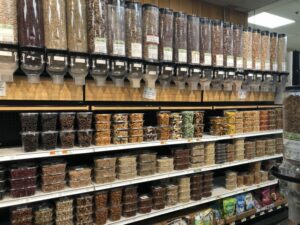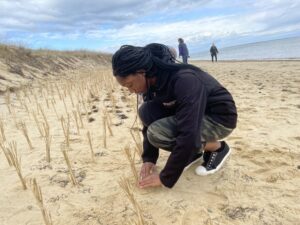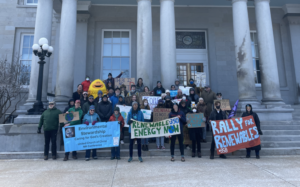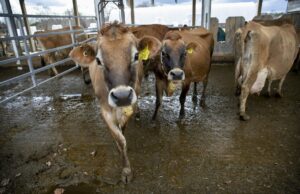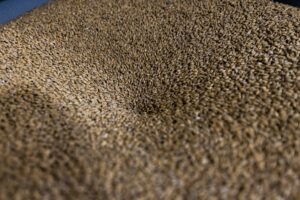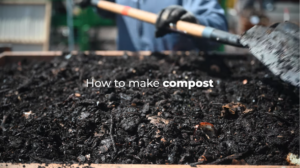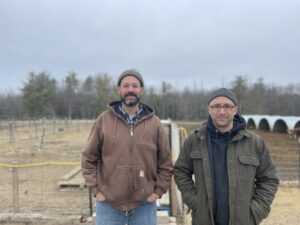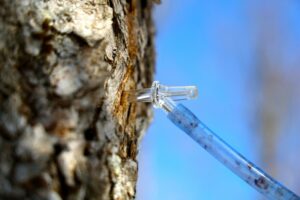Stories
Essay from WBUR reporter Martha Bebinger. The thin plastic thread running between one leaf on my pineapple and its tag does me in. I don’t see it when I put the pineapple in my shopping cart, when I load the check out conveyor belt or when I unpack groceries at home. It isn’t until I…
Read MoreEating less meat is better for the planet. Could my family go vegan for a month? Could I?
Commentary from WBUR reporter Barbara Moran. One of my son’s favorite recipes is “dinner en papillote” — it sounds fancy but it’s just sausage, potatoes, onions and mushrooms, wrapped in aluminum foil and baked for an hour. Voila — dinner is served! I expected the vegan version would be a hit. The soy chorizo looked…
Read MoreMany hands in the sand: Aquinnah tribe, volunteers plant beach grass for climate-resilient coast
The Wampanoag Tribe of Gay Head Aquinnah is determined to protect its homelands on Martha’s Vineyard from the impacts of climate change. To that end, tribe members and community volunteers are turning to beach grass: planting it one stem at a time to save an eroding sand dune and beach with deep roots in the…
Read MoreOffshore wind could create more underwater noise. UNH researchers are measuring those impacts.
Researchers at the University of New Hampshire are partnering with the first utility-scale offshore wind project approved in the U.S., Vineyard Wind, to gather data on underwater sounds and how they could affect marine life. Listen to Windfall: NHPR’s podcast about the burgeoning offshore wind industry in the U.S. Jennifer Miksis-Olds is the director of UNH’s Center…
Read MoreNew England youth activists resist paralyzing climate anxiety with food sustainability
A survey of 10,000 young people found that climate change is causing severe “eco-anxiety” in young people around the world. Climate news — like the grim UN reports of global warming intensifying— is ripe for “doomscrolling,” a toxic habit of despairing over seemingly endless social media and information overload. Young climate activists in New England — which is heating…
Read MoreOn a recent winter afternoon, a long line of brown Jersey cows lined up for feeding time, jostling for position. At the end of the railing, Blueberry snorted in anticipation. Today, her meal at the University of New Hampshire’s organic dairy farm was a standard mixture of hay and grain. But soon, she and her fellow dairy…
Read MoreWhen you see a can of beer do you think of agriculture? Well, grain — an essential ingredient in beer — grows on farms that are usually far away from the Northeast. Now an alliance is working to build a regional grain supply chain that supports local farmland, one pint at a time. To find…
Read MoreVIDEO: How making compost could help fix our trash problem
Getting food scraps out of the trash and into the soil will save money and protect the environment. Expert composter Domingo Medina shows you the best ways to do it. This video by Connecticut Public’s Ryan Caron King is part of special coverage from the New England News Collaborative on how climate change is affecting…
Read MoreMore local food could increase New England’s climate resilience. Animal processing capacity isn’t ready.
Jeff Backer and Dave Viola are raising about 400 pigs on their farm in Northwood, New Hampshire. The pair sell specialty sausage and salami to customers throughout New England. But they’ve had some trouble getting appointments to bring their animals to the slaughterhouse and process their meat into the products they sell. Backer and Viola…
Read MoreThe iconic maple syrup industry is an economic driver in New England and in Maine, the third largest producer in the U.S. But rising temperatures and erratic sap runs are posing big challenges and foreshadowing even bigger changes. If scientists’ predictions are correct, the northernmost reaches of Somerset County could become one of the last…
Read More
